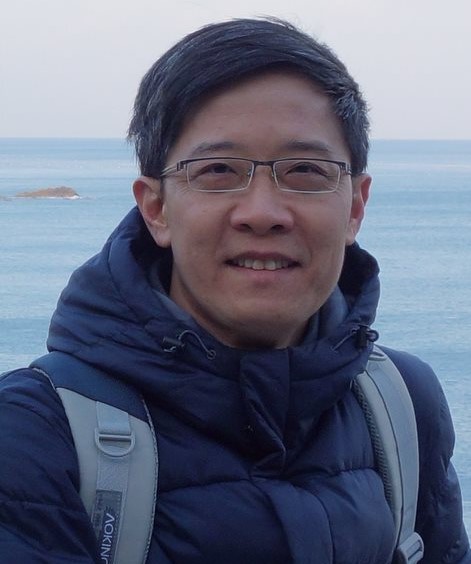
Healthcare systems around the world spend trillions of dollars each year to address growing healthcare challenges. These barriers include epidemiological shifts in death rates (from maternal, perinatal and infectious diseases to cardiovascular diseases and cancers), as well as an ageing population with longer life expectancies.
Singapore stands out among countries across the world. Its constantly stable economy, focus on social inclusivity and penchant for deploying technology have aided in hastening the achievement of the country’s healthcare milestones.
 OpenGov Asia had the opportunity to speak with Associate Professor Thomas Lew, Group Chief Data & Strategy Officer, National Healthcare Group to gain further insights on the future of healthcare in the nation as well as the key pillars and catalysts that drive the sector.
OpenGov Asia had the opportunity to speak with Associate Professor Thomas Lew, Group Chief Data & Strategy Officer, National Healthcare Group to gain further insights on the future of healthcare in the nation as well as the key pillars and catalysts that drive the sector.
Technology has accelerated transformation in the health sector
COVID-19 has introduced unprecedented challenges for healthcare across the board but at the same time inspired and driven innovations at unprecedented speed. Beyond a doubt, the use of technology in healthcare has resulted in better patient diagnosis and treatment and has improved the quality of life and saved lives.
In the current context, it is likely the most important sector to benefit from technological adoption. Telehealth, for example, has proven to be fairly successful as people seek to manage their care in new and different ways during the pandemic, which has surprised some physicians.
Singapore is a densely connected city-state where the complexities of an internet-enabled telehealth consultation compete with the standard physical visit to the doctor. According to Associate Professor Lew, telehealth must be contextualised for value, grounded on trust-based relationships, in areas such as real-time biological monitoring, and round-the-clock trusted advice and alerts.
“For the healthy population, the potential of health coaching for individuals and organisations has yet to be fully realised. In order to envision telehealth beyond transactional efficiency, much remains to be done,” he explains.
Artificial intelligence and automation services and systems also significantly benefit healthcare. Yet, Associate Professor Lew believes, while AI is not in the consciousness of mainstream healthcare workers, it is ubiquitous without their realisation.
The lower hanging fruits for AI inclusion in direct care interventions continue to be mundane and predictable tasks, as well as assistive robots in ancillary or health facility production systems. AI and machine learning are probably most valuable as augmented intelligence for narrowly defined use-cases with adequate digital guardrails so that the basis for interpretation is understood and trusted. In this context, experts have recommended that, in addition to deep learning, more traditional hierarchical models of reasoning be used.
When asked about the decision-making process through data analytics, Associate Professor Lew firmly believes that “decision-making is a complex cognitive science.” He says, “NHG has always been a data-driven organisation and has made many major shifts in its strategic directions, from attention to acute care, to the ageing population, to a pre-emptive model for augmenting today’s medical model for tomorrow’s preventive health of the population.”
Data scientists, such as those at the Institute of Mental Health, Tan Tock Seng Hospital’s Office of Clinical Epidemiology, Analytics, and Knowledge (OCEAN) and NHG’s Health Services and Outcomes Research (HSOR), enable NHG to apply data for insights and translation into policy and investments in new services. By creating a shared data model, NHG can implement near real-time health-intelligence tools across the organisation.
What’s Next?
NHG’s River of Life population health strategy comprising the Living Well, Living With Illness, Crisis and Complex Care, Living with Frailty, and Leaving Well segments of care, seeks to provide holistic, integrated care from cradle to grave, and ensures that no one is left behind for his or her health needs.
NHG is focused on implementing its digital master plan in tandem with the Ministry of Health’s digital ecosystem and the national Smart Nation Digital strategy. This entails strengthening NHG’s digital front-door services to the population. In addition, NHG intends to improve its data analytics infrastructure for ingesting unstructured data, analytics workbenches and business intelligence tools to advise policy decisions and improve outcomes.
“When we collaborate with our partners through portals on shared care plans, our residents can access digital services seamlessly to augment their experience with our physical healthcare system,” Associate Professor Lew elaborates.
When asked about his current role in upskilling the workforce and bolstering the talent pipeline, Associate Professor Thomas believes in the synergy of dual-domain expertise. Many of NHG’s skilled healthcare professionals, he noted, have solid foundations for expanding their roles over and above their core experiences into health technology-related areas such as informatics, data science, data systems management, and biomedical engineering.
Arguably, the COVID-19 pandemic has revealed stress points in societies’ coping mechanisms, as well as the limits to which individual needs are balanced with the collective interest. The way forward, he emphasises, is a return to basics, based on the values and ethical systems that govern healthcare delivery. With NHG’s vision of “Adding Years of Healthy Life,” the organisation is driven to be foresighted, proactive, and responsive to changing needs.
Singapore is not lacking in potentially disruptive technologies such as 5G for remote care or real-time supervision; machine learning for augmented intelligence, drug discoveries, and biomarkers; health insights through digital phenotyping; assistive robots for preventive care of the isolated; or using blockchain for improving the data security.
“What is important is being true to the values treasured by person and community, to ensure we deliver care to those we serve with good judgement, ethos, and empathy.”
About Associate Professor Thomas Lew
Associate Professor Thomas Lew graduated from the National University of Singapore (NUS)’s Faculty of Medicine in 1985, specialising in anaesthesia and intensive care medicine, with special interests in neurological intensive care and neuro-anaesthesia. He is Group Chief Data and Strategy Officer at the National Healthcare Group (NHG), one of three public healthcare clusters in Singapore, which serves 2.2 million residents in Central Singapore. He is currently an anaesthesiologist at TTSH, where he was Chairman of the Medical Board between 2011 and 2019.
Associate Professor Lew is also Clinical Director of NHG’s Centre for Medical Technology and Innovation (CMTi), an integrated agency that supports clinician innovators in collaborating with industry and academic partners to bring new technologies to market. On practising medicine, Associate Professor Lew says, “The practice of medicine builds purpose and meaning through service to individuals and community. It is very satisfying to help patients to recover and heal, and undeservedly receive their gratitude for a new lease on life. Through these encounters, tinged with their suffering, courage, and grief, we realise the fragility of life and the limits of medicine. However, this also inspires personal growth and maturity through learned experiences, in particular the power of communications, receiving and offering empathy.”
















